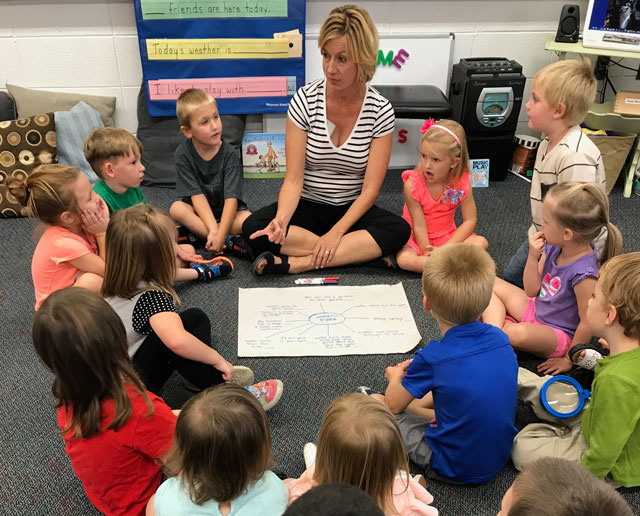A teacher recently asked me how to support the emergence of a project from a thematic unit. She wondered how a teacher knows when and how to make this happen. I hope this response will be helpful to her as well as to others.
As you observe the children in your class, you may notice that many of them are drawn to a particular activity that is part of your thematic unit. For example, in a thematic unit on transportation, you may find that the children enjoy pretending to ride in a train. Having noticed this type of play, you can talk with the children about trains to see how interested they actually are. This discussion might take place with either a small or large group of children. For example, at circle time, you might say something simple and direct, like, “I’ve noticed that some of you really like playing train. Would you like to find out more about trains?” If they respond in a positive way, then you can ask the children to tell what they currently know about trains, as you write down their ideas on a topic web.
Similarly, you can start the discussion with a small group of children. As they express their ideas and questions, you can start the topic web and then share the jointly created web with the entire group the next time they gather for circle time. The other children may then want to make some additions to the web.
Once the children’s initial ideas have been included in the topic web, you can proceed with the project in the same way you would if the project had emerged from an introductory event. The Tools Project is an example of a project that emerged from a thematic unit.
On the other hand, if you attempt to start a discussion about trains, but the children do not seem interested, then it may be best not to attempt to launch a project on that topic at that time. Keep in mind that, depending on their experience with the topic, the children may not have very much to contribute to an initial web, even if their level of interest is high.
Here are some other Web resources for teachers who would like to move from using thematic units to implementing the Project Approach:
- “From Themes to Projects” by Sylvia Chard
- “Issues in Selecting Topics for Projects” by Lilian G. Katz & Sylvia Chard

Sallee Beneke
Sallee (BenekeSalleeJ@sau.edu) is Professor and Director of Graduate Programs in ECE at St Ambrose University, Iowa. She coauthored The Project Approach for All Learners (2019) with Michaelene Ostrosky and Lilian Katz. Sallee used the Project Approach as a teacher and has worked to build the implementation of the approach via training and consulting. Sallee co-founded the IEL Project Approach Web site, and Facebook page with Lilian Katz, and she continues to contribute to the site.
Biography current as of 2021
Web Resources
-
From Themes to Projects
Source: Early Childhood Research and Practice
This paper presents the reflections of several teachers on their experiences moving from the use of a theme approach in their classrooms to using the Project Approach.


